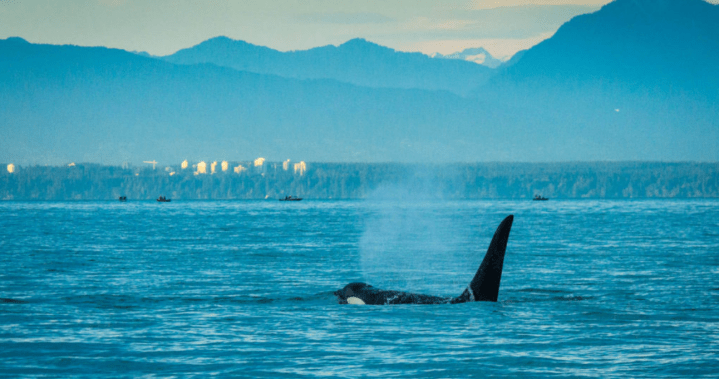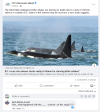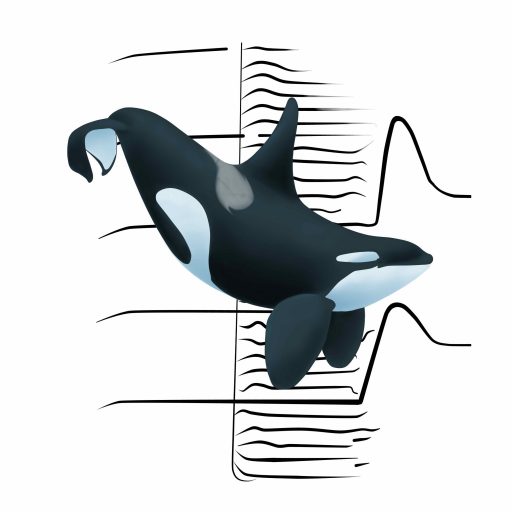searun
Well-Known Member
The decline of southern resident killer whales (Orcinus orca) may be due to a shortage of prey, but there is little data to test this hypothesis. We compared the availability of prey (Chinook salmon, Oncorhynchus tshawytscha) sought by southern residents in Juan de Fuca Strait during summer with the abundance and distribution of Chinook available to the much larger and growing population of northern resident killer whales feeding in Johnstone Strait. We used ship-based multifrequency echosounders to identify differences in prey fields that may explain the dynamics of these two killer whale populations. Contrary to expectations, we found that both killer whale habitats had patchy distributions of prey that did not differ in their frequencies of occurrence, nor in the size compositions of individual fish. However, the density of fish within each patch was 4–6 times higher in the southern resident killer whale habitat. These findings do not support the hypothesis that southern resident killer whales are experiencing a prey shortage in the Salish Sea during summer and suggest a combination of other factors is affecting overall foraging success.
Good to see some objective research on prey availability. Also good to see that many recreational boaters are doing a good job avoiding killer whale encounters - the number of incidents is way down. People are shifting their habits on the water to avoid whales rather than drive over to look at them! Making a difference.






